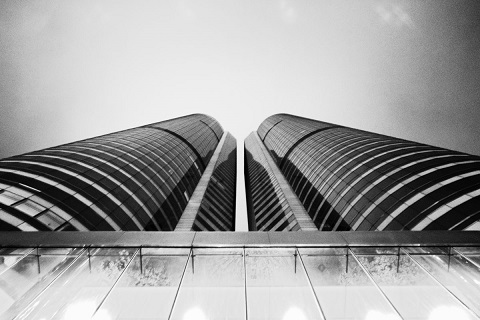It is a testament to the fast moving nature of the Covid-19 epidemic that the full-year results due to be published by a clutch of Hong Kong-listed solar companies early next week are likely to contain a lot more mentions of “coronavirus” than the update issued by Chinese PV glass company Xinyi Solar nine days ago.
At that point the glassmaker, solar project developer and engineering, procurement and construction (EPC) services provider was all smiles after its decision to expand manufacturing output, combined with exploding demand outside China, added up to “historic high” profits in 2019.
With demand for solar glass outstripping supply last year to the extent the product was commanding a price 20% higher at the end of the year than at the start, the board was understandably happy with performance.
The Covid-19 outbreak, of course, was first reported by China to the World Health Organization on the final day of the year and the Xinyi Solar board had clearly amended the original draft of their full-year report before publication last Monday.
Covid-19
“The spreading coronavirus outbreak to different countries around the world may add challenges to … global solar installation in 2020 and thereby change the demand dynamics and cause price fluctuation to the solar glass market,” stated the company in the outlook section of its annual update. The board went on, however: “Despite these uncertainties, the directors remain cautiously optimistic about the growth potential of the group’s solar glass and solar farm businesses amid rapid development of solar technology and increased penetration of solar energy in different countries, and may adjust the group’s solar glass capacity expansion plan and solar farm installation target where necessary.”
That suggests the Wuhu-based company may go beyond its current plan of bringing online fresh 1,000-ton per day melting capacity production lines in Guangxi, in June and during the third quarter; and in Anhui, in the final three months of the year and at “year end”. Those moves would take the company’s daily melting capacity from 7,800 to 11,800 metric tonsahead of another two 1,000-ton lines by July next year and a new low-iron silicon sand mine in Guangxi in the third quarter of this year. With Xinyi also aiming for 600 MW of new solar project capacity in China this year, all those ambitions are subject to potential upward revision, albeit with the caveat of also being influenced by Covid-19 fallout.
The figures were all heading in the right direction with burgeoning demand in the Netherlands, Spain, Germany, Italy, Turkey and Ukraine compensating for retreating demand in Xinyi Solar’s back yard as Beijing pushed for grid-parity solar by bearing down on solar subsidies. Those figures for European demand, of course, may not appear so healthy in a year’s time.
Grid-parity projects
Xinyi’s solar farm development business was on board with the Chinese market reforms as the company secured 200 MW of unsubsidized project capacity in the provinces of Guangxi, coronavirus-hit Hubei and Guangdong in the first batch of grid parity projects allocated by the National Development and Reform Commission and the National Energy Administration. The company has not fully weaned itself off subsidies, however, as it also landed 70 MW of feed-in tariff project capacity in Anhui and Guangxi in the first national auction for subsidized generation capacity.
Government rules stipulate work constructing the grid parity projects must start this year and the subsidized facilities must be completed by July to earn their full payments so there is the potential for Covid-19 to affect those timelines too. On the solar farm front, Xinyi Solar successfully spun its PV project operations and maintenance business into a separate operation: Xinyi Energy Holdings Ltd, in which the parent – itself a subsidiary of glass manufacturer Xinyi Glass – retained a 53.7% stake.
With those solar glass prices back up above the level seen when Beijing abruptly announced it would rein in solar subsidies in 2018, Xinyi Solar saw revenue rise from HK$7.67 billion (US$989 million) in 2018 to HK$9.1 billion last year for gross profit of HK$3.91 billion, operating profit of HK$3.31 billion and net profits of HK$2.8 billion, up from HK$2.04 billion, year on year.
Balance sheet
The company bank account swelled from the HK$784 million in cash and cash equivalents registered in 2018 to HK$2.22 billion last year – not bad considering the production line investments made by the business. That meant wider good news for a balance sheet which featured HK$28.4 billion of total assets and which saw long term bank borrowings fall from HK$5 billion to HK$3.88 billion, year on year; current borrowings down from HK$3.77 billion to HK$2.8 billion; and total liabilities retreat from HK$11.8 billion to HK$9.82 billion. The upshot leaves Xinyi Solar with HK$2.8 billion of borrowings payable on demand and within one year, down from HK$3.77 billion a year earlier.
With revenue from solar glass and solar farm development up, the only drop in performance was seen in the company’s less important EPC business, which saw sales fall from HK$189 million in 2018 to HK$101 million last year for profit of HK$33.4 million, down from HK$63 million. The company explained that was because Canadian subsidiary Polaron Solartech Group – which generates virtually all EPC revenue through its work on small scale installations – is being forced outside its usual provincial base because the solar incentive offered in Ontario expired last year.
That was a minor concern for a company whose expansionist approach appears to be paying off in spades. It will be interesting to see whether the Covid-19 outbreak proves to be more of an irritant.






